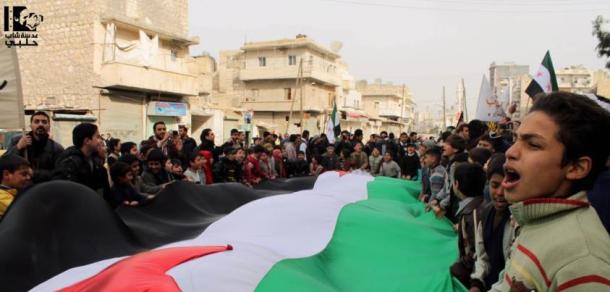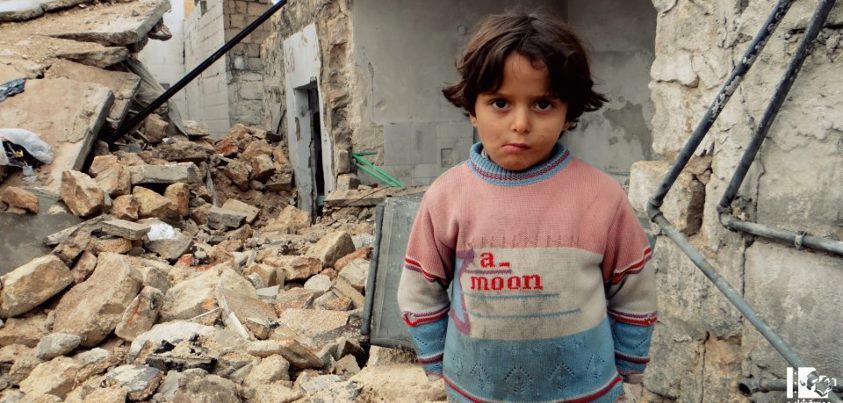SYRIA

Syria is currently facing an intense and brutal civil conflict between the government and a coalition of revolutionary forces, including both nonviolent activists and armed opposition groups, many of which operate under the umbrella of the Free Syrian Army.
The conflict began in March 2011 as a peaceful, popular uprising calling for democratic reforms, but President Bashar al-Assad responded to nonviolent protests with lethal force. The security forces and government-supported militias known as shabiha have employed tactics including shelling from tanks and snipers using live ammunition. Several villages including Houla, Hama, Daraya, and others have been the site of horrific massacres in which entire families have been shot execution-style by the shabiha while hiding in basements. As many families have fled or been massacred, so-called “Sunni markets” have spring up, where members of Assad’s Alawite minority sell goods looted from empty, often damaged homes of the majority Sunnis.
Between two and four million Syrians are thought to be displaced inside Syria, and many have been displaced multiple times as fighting spreads to once calm areas. Reports by Human Rights Watch have documented the regime’s escalating use of non-conventional weapons. Cluster bombs and incendiary weapons have been used to specifically target civilian populations, including the bombing of bakeries where civilians line up for their daily bread, now a scarce commodity. International agencies have also reported systematic and brutal torture techniques and sexual violence against detainees, including women and children. On February 12th, 2013, the United Nations estimated that nearly 70,000 Syrians had been killed and suggested that this was likely an underestimate. Medical personnel, peaceful protestors, journalists, and online activists have been specific targets.
 The intense clashes have instigated a refugee crisis as civilians flee their homes.
The intense clashes have instigated a refugee crisis as civilians flee their homes.
The United Nations High Commissioner for Refugees (UNHCR) estimates over 1.2 million refugees have fled to Turkey, Jordan, Lebanon, Iraq, and Egypt. Often housed in crowded camps or urban areas, many refugees lack access to adequate aid. Another 4 million Syrians still in Syria are also in desperate need of humanitarian assistance, including food, blankets, medicine, and infant formula.
http://www.amnesty.org/en/region/syria
http://www.hrw.org/middle-eastn-africa/syria
http://data.unhcr.org/syrianrefugees/regional.php
http://www.huffingtonpost.com/2012/06/19/homs-sunni-markets_n_1608009.html
http://www.un.org/apps/news/story.asp?NewsID=43866&Cr=syria&Cr1=#.UOXG6HeI7fU
http://www.reuters.com/article/2013/02/12/us-syria-crisis-un-idUSBRE91B19C20130212
Information courtesy of Syrian Expatriates Organization.
Above photos courtesy of Lens of a Young Halabi, part of the Lenses of Freedom project in Aleppo.
